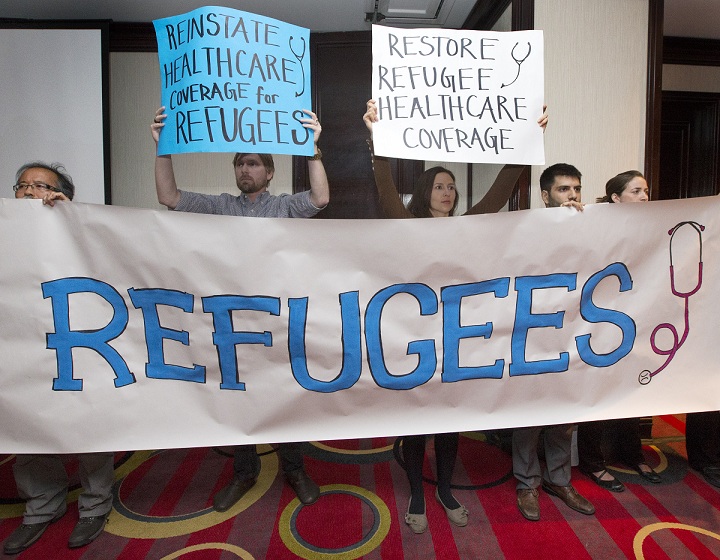OTTAWA —The Harper Conservatives have spent no less than $6.5 million defending high profile and contentious pieces of legislation ultimately deemed unconstitutional, recently disclosed documents show.

But that sum only tells the beginning of the story, said one criminal defence lawyer.
The $6.5 million price tag was arrived at after Liberal MP Scott Simms asked six ministers to release how much they’d spent fighting 16 specific constitutional court challenges.
READ MORE: Top court softens Tories’ tough-on-crime agenda
The government lost each of the challenges at various levels of court, said Michael Spratt, partner at Abergel Goldstein & Partner in Ottawa.
“But they do not represent all the losses,” he said. “That is the tip of the iceberg for this government defending unconstitutional laws.”
The specific cases Simms cited run the gamut from imposing mandatory minimum sentences to retroactively changing parole provisions, and from determining the eligibility of Supreme Court nominee Marc Nadon to shutting down supervised injection sites.
READ MORE: Mandatory minimums for gun crimes unconstitutional, Supreme Court rules
This so-called tip of the iceberg suggests a problem within the Department of Justice, where political bodies are strong-arming the experts, said Liberal justice critic Sean Casey.
There is an obligation under the Department of Justice Act to run legislation through a constitutional filter, he explained.
Still, the Liberals have repeatedly asked for opinions with respect to the constitutionality of various pieces of legislation, but found resistance at every turn, Casey said in an interview Tuesday.
“I think this speaks to the political arm not listening to the experts within the Department of Justice, not listening to the experts in the academic community,” the critic said. “In many respects they think they’re above the law. We see that when they repeatedly introduce unconstitutional legislation and then we see it in their reaction when it’s found to be unconstitutional by the courts.”
Justice Minister Peter MacKay’s office said that at any given moment the government is involved in about 40,000 litigation files.
“Last year we were successful in nearly 70 per cent of cases,” the minister’s spokesperson wrote in an email, adding that the department has successfully cit down on the number of hour spent on litigation files.
“We remain committed to defending the rights of Canadians.”
READ MORE: How the U.S. feels about mandatory minimum sentences
The most expensive of the 16 cases Simms requested —it has run the government more than $1 million to defend — centred on cuts to refugee health care.
Ottawa trimmed medical benefits for newcomers in 2012, leaving most immigrants with basic, essential health care only.
Rejected refugee claimants, as well as refugee claimants from countries the government considers safe, were offered health care only if they became public health threats.
The million dollars the Conservatives spent didn’t get them much; in July last year, the Federal Court ruled the cutbacks amounted to “cruel and unusual” treatment, particularly to children. The court gave the Conservatives four months to change the law.
With the government’s recent appeal of the Federal Court decision, however, taxpayers can expect to spend a lot more before the matter is settled.
Lawyers for refugee claimants say that case is not scheduled to be heard until after the federal election, scheduled for Oct. 19. In the meantime, however, the government has been forced to reinstate some of the benefits in order to comply with the court ruling.
Doctors and refugee advocates who took part in a cross-Canada protest Monday said the current system still doesn’t meet the requirements laid out by the Federal Court last summer.
Among the specific cases noted in the documents, Casey said he can’t quibble with the Senate reference at the Supreme Court, which topped $660,000.
“The expense was justified because they posed a question to the court, they didn’t go forward and do something they knew was wrong, then get slapped down,” he said.
But that case is an anomaly among the others, he said.
“With all the others, it’s never mind the law, never mind the Charter and never mind the evidence. This is the way we want to go and we’ll try to bleed our opponents dry in court.”
Scott Simms Order Paper Question
With files from The Canadian Press



Comments